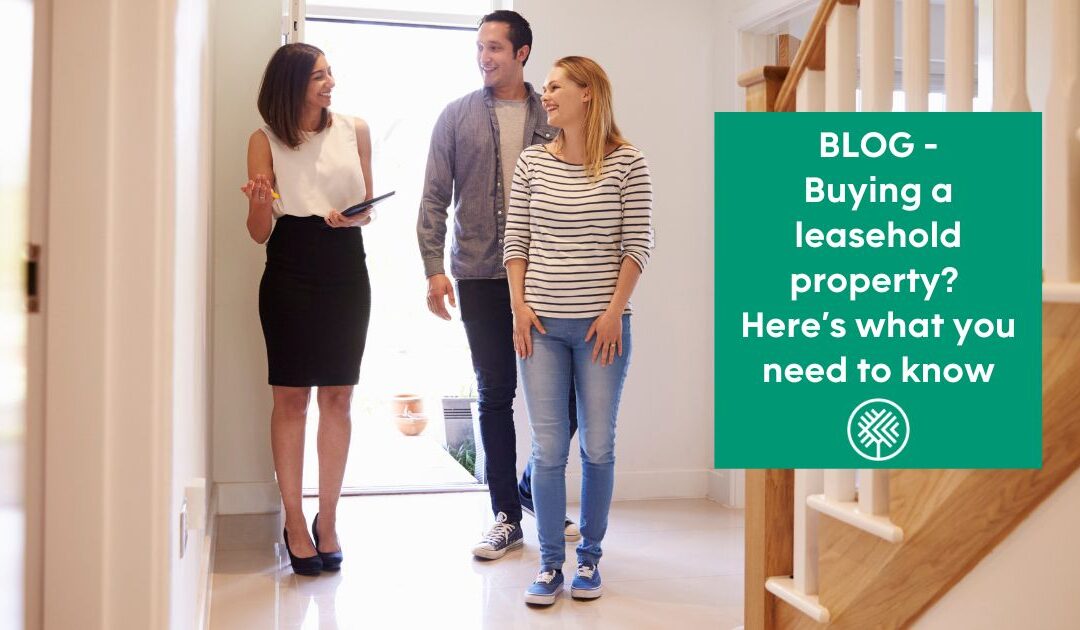What is a leasehold property?
With a leasehold, while you own your property, you don’t own the building or land on which it sits. That means you’re obliged to pay ground rent to the freeholder every year, either at a fixed or variable rate. (Although the government has banned this charge for new leases.)
Owning the freehold to a place, in contrast, means you own the building and the land on which it has been constructed, and are therefore fully responsible for grounds and building upkeep. Most UK homes are sold freehold, although the number of leaseholders has risen in recent years, especially where new-builds are sold directly via the developer.
Leasehold arrangements are particularly common for flats in blocks of apartments. In town and city centres, for example, most property sales are likely to be leasehold deals.
When you buy a leasehold home, you purchase the lease from the freeholder for a predetermined number of years. But, at least technically, the freeholder retains ownership of the building and the land.
Service and maintenance charges
You’ll pay these to cover the costs of looking after the communal areas of your building. For example, in an apartment block, that might include gardens, lift, building insurance and halls.
While sums are typically fixed, it can be variable and change from year to year.
Questions to ask when acquiring a leasehold
Leasehold solutions can work well for many people. But there are definitely a few things you need to be clear on before you proceed. Here are the key questions to be asking:
- Charges
Ask your solicitor about these and whether these fees are fixed. Does the lease administrator have plans for future works which you may be responsible for paying for? What is the service charge and what does it cover? Is it variable?
In addition, ask about any rent review clauses, ground rent and so on, to prevent future unexpected expenses. Ask if there is a sinking fund, or kitty to which residents contribute to pay for maintenance work which may come up in the years ahead.
- Restrictions
Ask about any limitations, from hanging out washing over the balcony to keeping pets to things like a loft conversion. Find out what exactly you can and can’t do by checking what is covered in the leasehold agreement carefully.
- Is it possible to buy the freehold?
Be sure you understand who owns the freehold, if it is ever likely to be sold and, if so, who to. With new builds, you can often get a quote for a freehold purchase from the sales office.
- How long remains on the lease?
Lease lengths can run for 999 years, but typically kick off at around 99 or 125 years. Ask how long is left, since a shorter lease (i.e. less than the magic number of 80 years) could impact your ability to get a mortgage. To extend your lease, you need to have been resident in the property for a minimum of two years.
Ideally, you want to have 83 years or longer remaining on your lease. This gives you sufficient time to live in the property for two years should you then want to extend it.
- Managing agent
Find out who the managing agent is and aim to do a little research into them. You certainly don’t want to be buying a place with a below-par agent who won’t deal with issues or maintain the building in the way they should.
Oakfield says
It’s true that being a leaseholder can sometimes be complex. And in 2020 the Competitions and Market Authority (CMA) found evidence of high ground rents and service charges, plus a lack of information on how to go about extending a lease.
But, equally, many have been living happily as leaseholders for years and there are millions of these arrangements up and down the country. So if you find your dream home and it happens to be leasehold, you really shouldn’t let that put you off.
There are even some benefits, and plenty of things you can do if you do have a complaint or any queries. For example, advantages can include:
- The freeholder normally organises buildings insurance on your behalf
- You don’t have to deal with repairs and maintenance
- The terms of your lease can mean that if you’re experiencing problems, for example with noisy neighbours, this can be dealt with
What’s more, the government plans to make it easier and cheaper for people to extend their leases. And those with the right to lengthen their lease will be able to do this by 990 years, and, in these situations, any ground rent will be written off.
This means that many who extend their lease or buy their freehold will pay less.
At Oakfield, we have extensive experience of managing leasehold blocks, so we’re ideally placed to offer you advice, whether you’re a landlord, a tenant or considering buying a leasehold property.
And with offices across Bexhill, Hastings and Eastbourne, we’ve been working in our part of the world for years. Get in touch with a member of the friendly, professional team today to learn more. Click here for our contact details.

